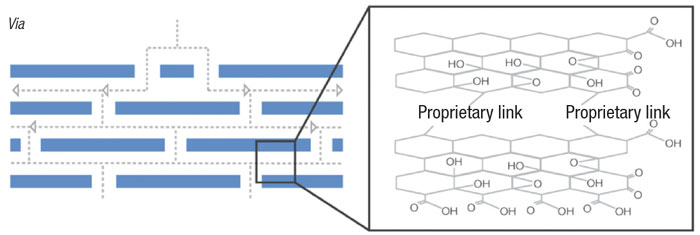Filtration is being investigated as an alternative to thermal separation methods (such as distillation and evaporation) in many applications because of the potential energy savings, but conventional filtration membranes, such as those used in water desalination, are often not robust enough to withstand high temperatures and harsh chemical conditions.
Now, Via Separations (Somerville, Mass.; www.viaseparations.com) has demonstrated a process for making graphene-oxide (GO) membrane material that can withstand harsh conditions. In its first commercial application, the GO membrane is being employed for the concentration of black liquor in pulp-and-paper operations, where the membrane experiences very high pH.

A byproduct from wood-pulping processes, black liquor contains lignin, hemicellulose and inorganic materials from wood, after cellulose has been removed during paper manufacturing. Initially, the black liquor contains about 12–15% solids, and it needs to be concentrated to 70% solids in order to recover and recycle the organic chemicals from the black liquor back into the pulping process.
Via’s membrane consists of graphene-oxide (GO) flakes cast onto a hydrophilic support material through a proprietary deposition procedure. The resulting scaffold of GO flakes is bound together by customizable molecular links that allow the scientists to manipulate the amount of space between the GO sheets. “The assembly process with the GO and linkages can be run in a variety of ways,” explains Via engineer Lauren Kovacs. “The GO chemistry allows for customizations to separate materials with varying molecular weights.”
The resulting membrane is robust enough to separate solids at pH levels of 13–14. The membrane material is then spiral-wound into modules similar to the configuration of a reverse-osmosis membrane.
Via engineers are building a portable pilot system for black liquor concentration that will be set up at a paper mill in early 2021.